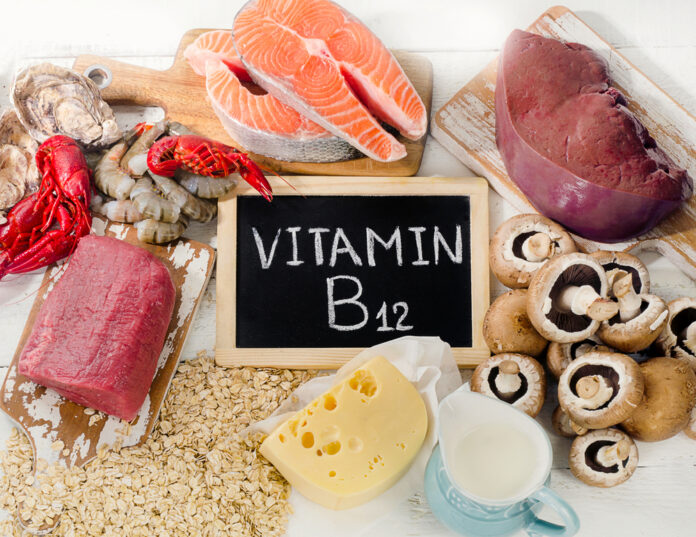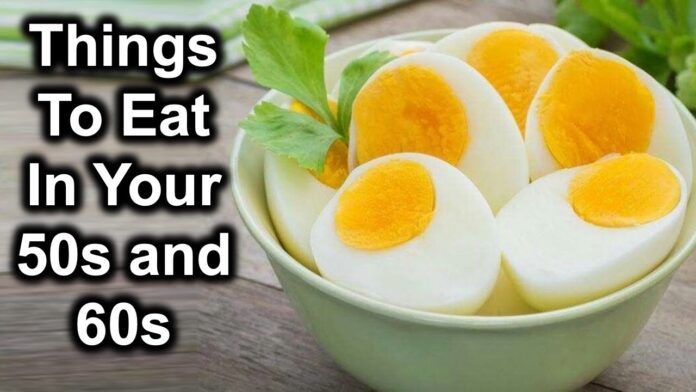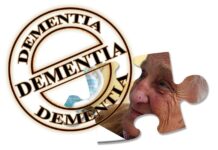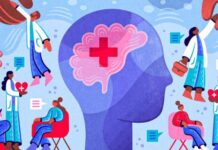As we age, our dietary needs change. We consume less energy and tend to eat fewer calories than we used to.
It’s important to watch portion sizes and eat a variety of foods. Including plenty of vegetables in your diet can help you get the nutrients you need.
Good nutrition can help you stay healthy and prevent chronic diseases. It also helps maintain lean muscle mass, which is vital for a healthy body.
Eating plenty of protein is also crucial, as it boosts immunity and keeps your body functioning efficiently. Avocados are an excellent superfood that contains a surprising amount of nutritional value for older adults.
They are naturally rich in fiber, antioxidants, and heart-healthy fats, which can help keep your body strong and skin radiant. Avocados are a delicious snack and can provide you with essential vitamins and minerals.
To know more about healthy eating in your 50s and 60s, continue reading.
What Is Healthy Aging?

Healthy aging is an ongoing process that can ensure independence, security, and productivity. Unfortunately, many older Americans struggle with health issues that can dramatically reduce their quality of life.
Chronic disease and mental health problems are among the most common health challenges faced by older Americans. Fortunately, there are several ways to maintain good health and avoid a decline in these important aspects of life.
Regular health screenings are an important part of a healthy aging lifestyle. These checkups can help prevent chronic diseases by detecting them in their early stages. Eating well-balanced meals can also improve quality of life and feelings of well-being.
Important Nutrients to Focus On In Your 50s and 60s
In your 50s and 60s, it’s important to keep in mind that your diet is changing and may not be as nutritious as it used to be. A slowed metabolism, changes in taste perception, and medications can all contribute to a diminished appetite. While these factors can be challenging to combat, there are ways to make up for lost nutrition.
1. Protein
Protein is an important nutrient that can help you maintain your muscle mass and vigor. Consuming a varied diet rich in protein, such as Mahogany Smoked Meats, is a vital part of healthy aging. Protein helps build muscle mass and contributes to a healthy metabolism and immune system. A diet rich in protein can reduce your risk of heart disease and stroke. Generally speaking, you should consume 1.2 to 1.5 grams of protein per kilogram of body weight per day.
2. Fiber
As we age, it’s important to make sure that our bodies are getting the right amount of fiber. You can eat more fruits and vegetables, especially those with skin, and you can also take a fiber supplement. Fiber is an important nutrient that helps keep the gastrointestinal tract moving smoothly and prevents constipation. Moreover, consuming 25 to 30 grams of fiber a day is a good goal for seniors.
3. Calcium
If you’re in your fifties and sixties, it’s important to focus on calcium and other nutrients that maintain healthy bones. Calcium helps the body absorb vitamin D, which boosts the immune system. Unfortunately, many people do not get enough vitamin D. Luckily; there are several foods rich in vitamin D that you can incorporate into your daily diet. However, milk and other dairy products are great sources of calcium. Canned fish with soft bones is also a good source of calcium. Tofu is another good source of calcium.
4. Potassium
Potassium is an essential mineral that has important functions in the body, including helping blood vessels relax. When blood vessels are rigid, it can lead to high blood pressure and heart problems. Potassium can also help with muscle and nerve health. It should also be included in your diet on a daily basis. Women should aim to get at least 2,600 mg of potassium daily, while men should aim for 3,400 mg daily.
5. Vitamin D
In your 50s and 60s, you should focus on food sources of vitamin D. This vitamin is an essential nutrient that helps protect your body from infections and illness. The best source of vitamin D is sunlight. However, your body’s ability to produce it decreases as you age, so you should consider taking vitamin D supplements. Vitamin D is important for the immune system and bone health. Foods rich in vitamin D also include mushrooms, egg yolks, and fatty fish.
6. Vitamin B12

If you are in your 50s or 60s, you might want to focus on your vitamin B12 intake. Deficiency can cause many issues, including nerve damage. You might also notice shaky movements and trouble walking. Vitamin B12 is essential for the maintenance of a healthy nervous system and key metabolic processes.
7. Omega-3 Fatty Acids
It is important to get sufficient amounts of omega-3 fatty acids in your diet. You can get this nutrient from fatty fish and fortified breakfast cereals. Omega-3 fatty acids can also improve your brain function and can help in preventing Alzheimer’s disease and dementia.
8. Antioxidants
Antioxidants in foods help neutralize free radicals that can damage your body. They protect vital cellular structures and are a natural part of our diets. Research suggests that antioxidants can prevent Alzheimer’s disease, and they may also improve cognitive function. Berries, dark-skinned fruits, and oranges are also rich in antioxidants.










